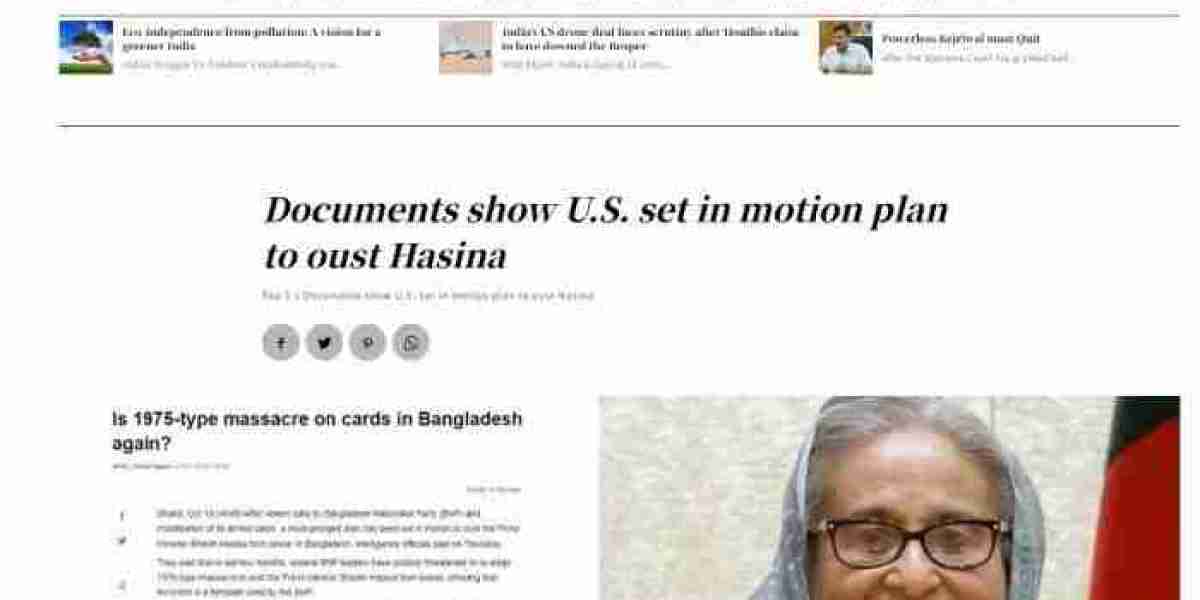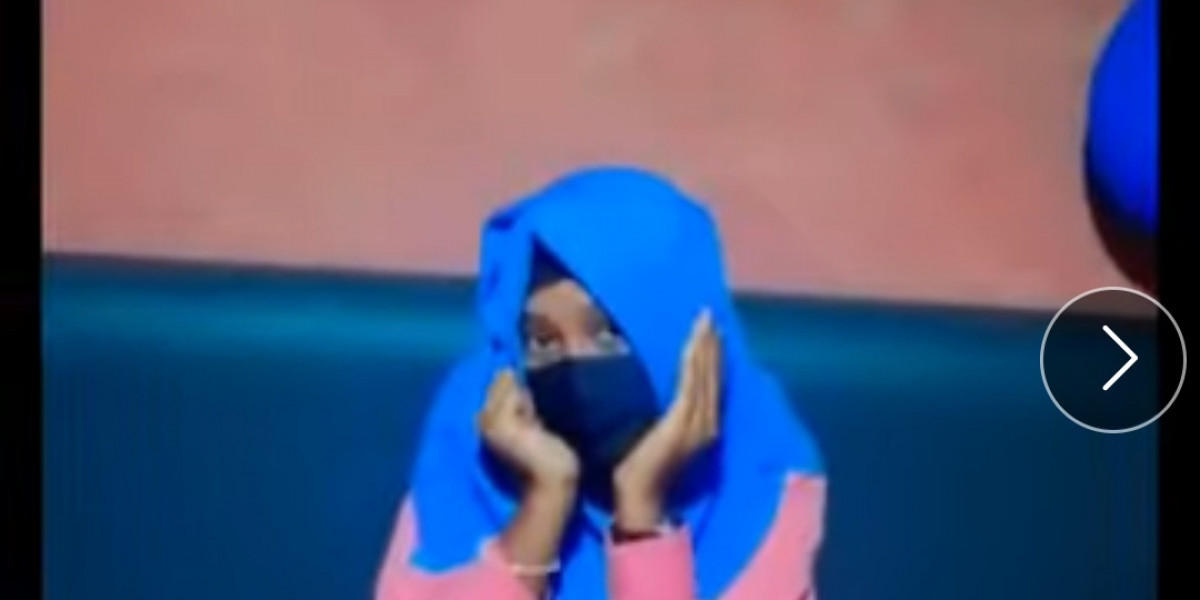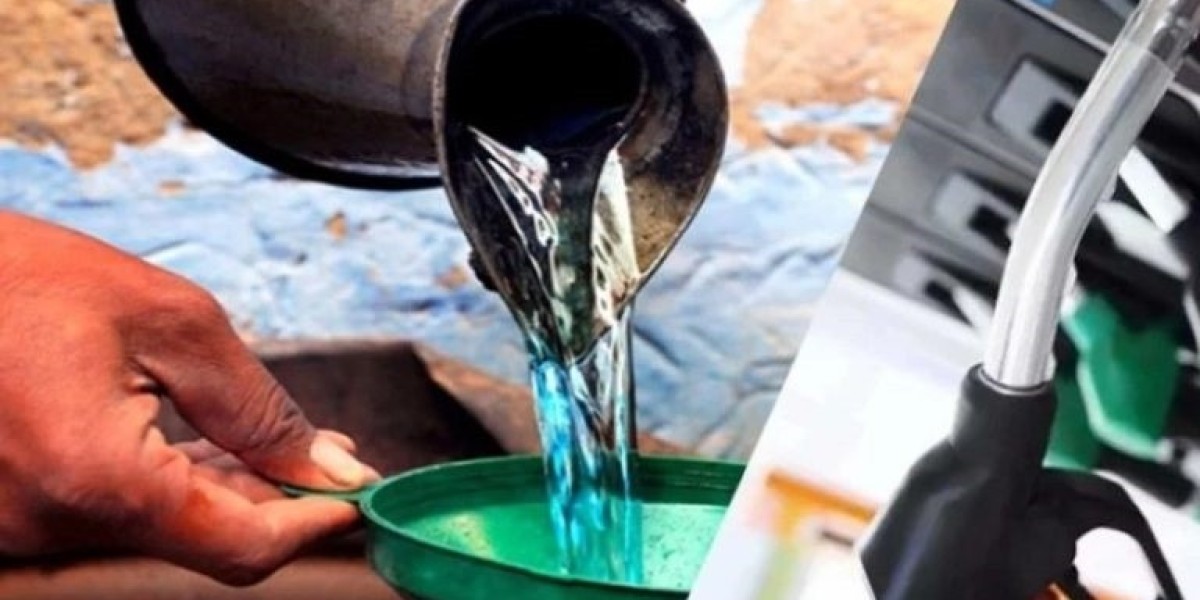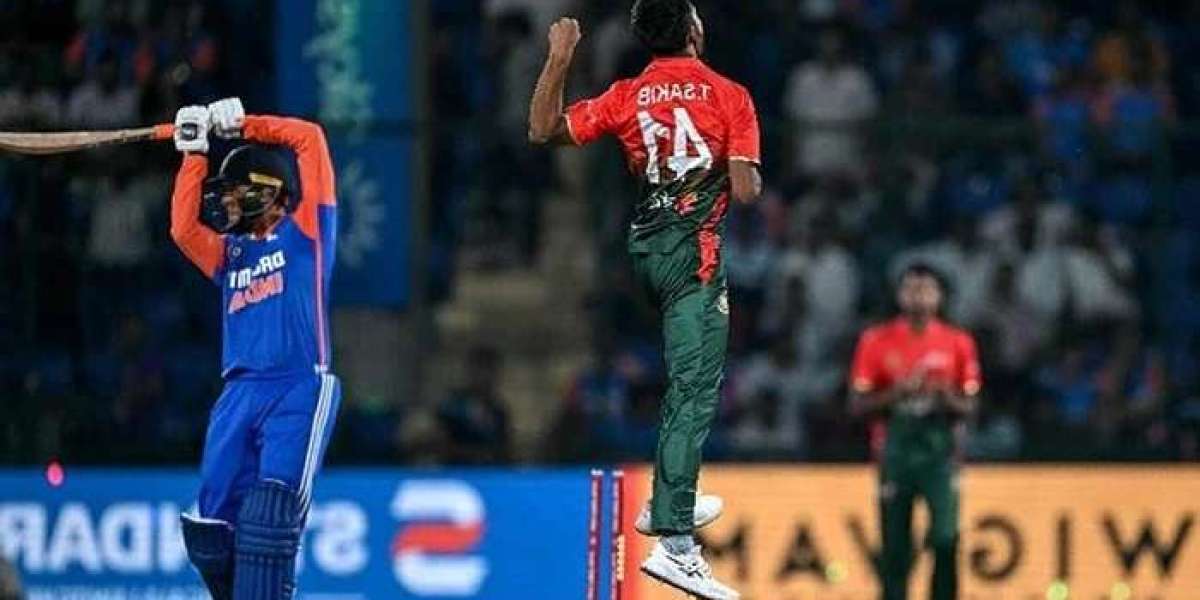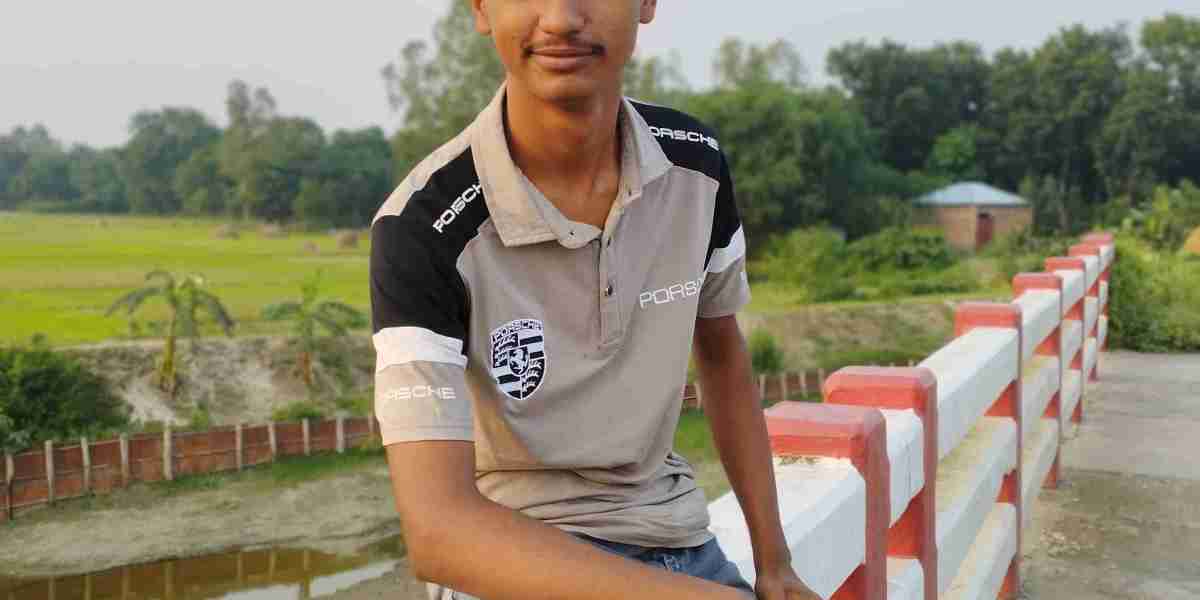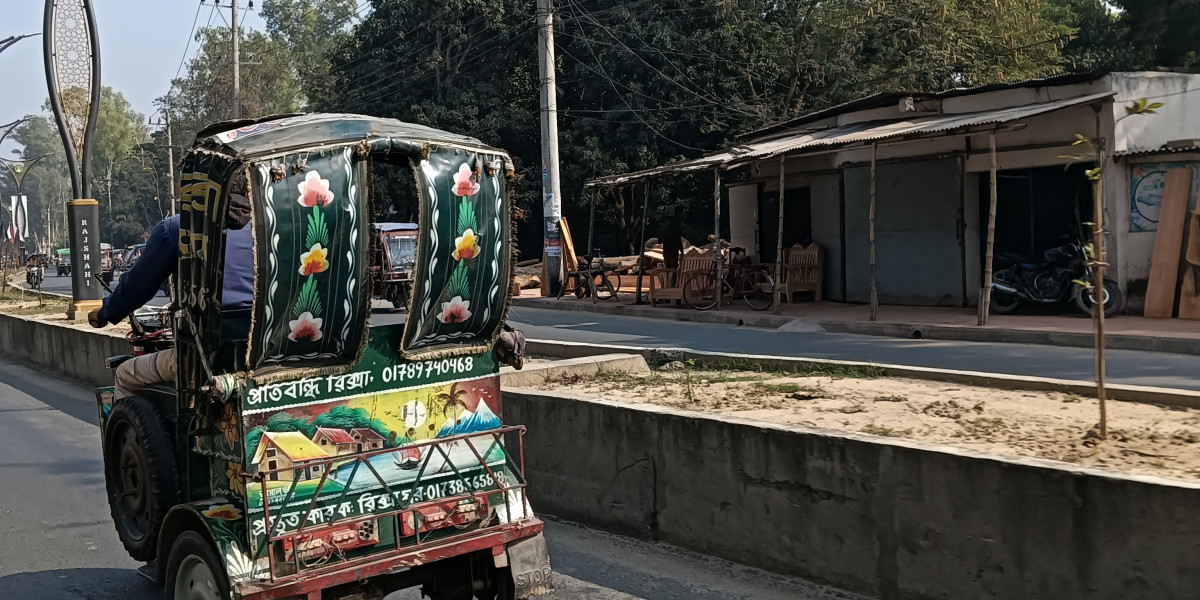Five years ago, the United States made a plot to overthrow Hasina?
September 17, 202410 Mins Read
Jumbangla Desk: There are many controversies about Sheikh Hasina's resignation. Hasina herself started the controversy. Sometimes he says he resigned. He never said. He spoke in the same tone in the latest audio clip as well. Saying, he resigned right, but not according to the constitution. Now the question is, after the mass revolution of the students, is the government running according to the constitution? But no one is saying it for sure. Journalist Amir Khosru says that the revolution does not comply with the constitution. It is the revolution that makes the constitution. Hasina has repeatedly said that America had a hand in getting rid of her. But America says they are not associated with it. Hasina was forced to resign in the uprising of Bangladeshi students. In this situation, the Indian media The Sunday Guardian gave a sensational news. However, there is no such news in the media of Bangladesh. There was never any speculation about it here. However, opposition politicians including BNP started a vigorous movement from 2010. But their goal was not achieved. Source: Manavzamin Online, THE Sunday Guardian
The newspaper says that the United States has been plotting to overthrow Hasina since five years ago. They got this idea after rummaging through some documents. From 2019, the United States started working on the plot to overthrow Hasina. Readers will be curious about this. And with that in mind, I present here the report of The Sunday Guardian.
Documents show US set in motion plan to oust Hasina It is said in the report that the plan to remove Bangladesh Prime Minister Sheikh Hasina started in early 2019. Documents obtained by The Sunday Guardian point to that. According to the document, this task was entrusted to the government-funded agencies from the United States After Mongolia (1996), Haiti (2001) and Uganda (2021), the latest success for the US-based International Republican Institute (IRI) is 'Bangladesh', which has successfully managed to bring about regime change in Dhaka. According to internal documents provided to The Sunday Guardian show, the IRI implemented the larger objectives of the National Endowment for Democracy (NED) and the United States Agency for International Development (USAID). The documents also show how the project was necessary to counter "interference" by India.
Washington-based IRI's mission is to: “Promote democracy by supporting democratic institutions, political parties, civil society, and electoral processes, and participate in the implementation of USAID-funded projects aimed at improving democratic governance. IRI is one of the four core institutions of NED, along with the National Democratic Institute (NDI), the Center for International Private Enterprise (CIPE) and the Solidarity Center. Similarly, NED provides grants to IRI for various projects aimed at strengthening democratic institutions and processes. Founded in 1983, the National Endowment for Democracy or NED is a private, non-profit organization primarily funded by the US Congress. It operates independently, receiving annual appropriations through the Foreign Office. The United States Agency for International Development (USAID) is a government agency involved in administering foreign aid and development.
In March 2019, after receiving grants from USAID and NED, IRI began the process of implementing a program to bring about governance change in Dhaka. The said program was named “Promoting Accountability, Inclusivity, and Resilience Support Program” (PAIRS) and it ran for 22 months till January 2021. The IRI stated that “the program was needed to increase political participation of the citizens of Bangladesh and amplify anti-authoritarian voices. IRI fosters citizen-centric, local and non-traditional forums to implement social empowerment projects for political engagement. For this, IRI has awarded 11 advocacy grants to musicians, acting personalities or organizations. who have created 225 artworks to highlight the political and social issues of Bangladesh which have been viewed over 400,000 times. Three civil societies from the LGBTI, Bihari and ethnic communities helped IRI train 77 staff and engage 326 citizens in formulating 43 specific policy demands. It was presented before 65 government officials. Three focus groups have conducted community-based research, including the largest survey of LGBTI people in Bangladesh.”
Incidentally, on March 16), the National Democratic Institute (NDI), another Washington-based organization, and the IRI's Technical Assessment Mission (TAM) released a report on Sheikh Hasina winning the 2024 national elections. The agency released the said report after running the PAIRS program for 22 months. The report claims that the 2024 election, i.e. campaign period, election day and immediately after, saw less physical and online violence compared to previous elections. Primarily due to the absence of nationwide partisan competition and the state's increased focus on election security. The report also said that the quality of the January elections was marred by incidents of violence by the state, the ruling party and the opposition. The pre-election environment noted political polarization, violence between leaders, narrowing of citizenship and erosion of freedoms.
IRI, while talking about its PAIRS programme, said that Sheikh Hasina's government had the potential to destabilize during the Covid-19 pandemic but that did not happen as the death rate was low and she was able to recover the economy despite the challenges. IRI said – “BNP remains marginalized, while Awami League's power is unlimited. However, BNP can still be cited as the most likely party in the event of a change of power in the future. The health and economic situation that arose during the corona pandemic had the potential to destabilize Bangladeshi politics. However, death rates in Bangladesh were low and the economy recovered. At the same time, IRI said PAIRS was relevant in view of the Digital Security Act passed by Hasina.
Because this law was designed to curb the freedom of social media and hinder the work of civil society organizations.
According to IRI - the Awami League government has used the Digital Security Act (DSA) passed in 2018 - to jail political opponents, journalists, rights activists and ordinary citizens who criticized or challenged the state's response to Covid-19 on social media. This online The bans didn't just start to stop criticism of Covid-19. The ICT Act (2013) – was replaced by the DSA, which gives the government similar powers to regulate any online speech. The Covid-19 crisis presents a new opportunity for the government to exercise its authority in the digital space. IRI's program was designed to work and respond to this political context. In Bangladesh, where civil rights are curtailed, IRI designed a creative program to counter anti-democratic trends. IRI supported socially conscious artists, although traditional civil society organizations (CSOs) continued to Faced with pressure. But individual artists and activists are hard to suppress. Because they can easily reach the audience with democratic and reformist messages. In addition, the IRI identified marginalized communities—particularly the Biharis, the Plains and LGBTI people—whose advocacy the government would support rather than view as a threat. Both approaches have proven effective in the current political context and point to important possibilities in the future. IRI's programs have increased public awareness of social and political issues in Bangladesh and ultimately succeeded in shifting power within Bangladesh. "
Documents obtained by The Sunday Guardian detail how individuals were sensitized for events, book releases, storytelling, photo exhibitions, art exhibitions, theater performances, dance performances, film and documentary screenings, round table meets, advocacy training programmes. Some of these were exclusive invitations, attended by political officials and consular officers from the US Embassy. According to IRI findings, the program directly affected 4 lakh Bangladeshi citizens. Similarly, another project IRI worked on from February 2021 to September 2022, for which the National Endowment for Democracy (NED) was awarded a grant of $9 lakh. The IRI stated that – 'Their mission was to empower marginalized voices, especially youth and women, for political debate and decision-making. Encouraging women to enter politics. As well as engaging with student wing representatives of the two major political parties to educate them about inclusive and non-violent means of political participation. Enhancing the leadership skills of non-partisan student leaders on university campuses and supporting student engagement in the cultural world.”
Warning for India?
What should Delhi and other countries be careful about after this document comes out? Because it holds India responsible for supporting Awami League's corrupt political competition. It is said – "In Bangladesh, the political competition is dominated by two political parties: the Awami League (AL) and the Bangladesh Nationalist Party (BNP). Over the last ten years, the Awami League, with the support of India, has increasingly dominated the soil of Bangladesh and corrupted the political competition." Another similar report commented on India saying, “Awami League and Sheikh Hasina will seek re-election by any means with the support of India. Because it is necessary to resist the intervention of regional powers.”
In one event, IRI conducted a workshop on non-violence and inclusive elections with 15 student leaders (12 men, three women) from Bangladesh Chhatra League, Chhatra Dal, Chhatra Odhikar Parishad, and student organizations of various political parties in Tangail district of Dhaka. Similarly, the state of Awami League student politics Another round table discussion was organized in Tangail district with 11 BCL members (nine men, two women) and one senior leader (one man) to discuss. Later, IRI organized a virtual roundtable discussion with BNP student body members from Tangail MM Ali College. A total of 11 students (10 men, one woman) were present in the discussion, including senior Chhatra Dal leader Rana Ahmed. IRI's Bangladesh Strategy 2021-22 gives a glimpse of why it was imperative to choose an apolitical entity (Mohammed Yunus) to run the government instead of Awami League and BNP after Hasina took refuge in India. Even Khaleda Zia's name was not there to run the government. The opposition BNP faced external pressure, internal chaos and declining popularity. The AL-led government used all kinds of pressure to suppress BNP members and supporters, including harassment, imprisonment, extrajudicial killings. Although there was an opportunity in the elections, the power to challenge the government in front of BNP was limited. Internally, the party is divided between its Dhaka-based and London-based leadership. Those who favored internal democratic reforms were supported by Khaleda Zia's son Tariq Rahman, who again controlled the party from London. The biggest challenge for BNP is lack of leadership. Perhaps this is the reason why the popularity of BNP is declining. In September 2019, IRI's most recent national survey gave 36 percent approval of the 'opposition', the lowest rate noted in the survey. Also, BNP's pre-Covid-19 public meetings, which were mostly held before Khaleda Zia's release from prison (March 2020 ) focused on, hardly any human presence was observed.”
A.League and BNP have a major role in the democratic regression of Bangladesh. Awami League's strategy is authoritarianism and boycott of BNP and indecisiveness of party leaders. A change in party leadership can solve this problem, but that is unlikely with new political leaders. A.League and BNP are hierarchical and family based parties. A circle of advisors guides both parties. Khaleda Zia and Sheikh Hasina have focused on their children as successors. Young or reformist new leaders face many obstacles in both parties. Family loyalty is the main principle here. Similarly, the Bangladesh army, business class and civil society also held a low opinion of the BNP. The business sector and the army are institutions that can challenge the Awami League government with money and weapons. However, the AL government has indulged the interests of business and military elites to appease them. Instead, the Awami League made political support essential to business success through state tenders, permits and licenses, and control of shipping routes. Businessmen belonging to opposition parties became the target of targeted corruption cases. "
Civil society has been disconnected from the grassroots level. Civil society is the bridge between the state, the private sector and the family. Members of civil society meet to discuss or resolve civic issues. In Bangladesh, civil society is dominated by Dhaka-based NGOs that often lack grassroots connections and whose activities are geared toward meeting donor needs rather than addressing citizen concerns. Civil society has become an elite sector. is
While identifying “priority areas of work”, the IRI stated that their aim is to strengthen the political party. In Bangladesh, despite the growing polarization and contentious political system, the IRI developed strong ties with the country's two main political parties, the Awami League (AL) and the Bangladesh Nationalist Party (BNP). In addition to regularly briefing political party leadership on the findings of extensive public opinion research, IRI provides tailored technical assistance to political parties in citizen-centric and data-driven messaging and policy development.
The document identified five Washington-based State Department officials and three Dhaka-based US officials, two from USAID and a political officer from the US Embassy as primary contacts. However, the Sunday Guardian did not want to reveal their names.
The senior officials named to oversee the execution of this entire program under the heading “Heal Outreach” are: Chris Murphy (D-CT), SFRC (assigned to the South Asia Subcommittee), Sumna Guh, South Asia Director, National Security Council, Donald Lu, SCA, Incoming Assistant Secretary, State Department, Sarah Margon, DRL, Incoming Assistant Secretary, State Department, and Francisco Bencosme, EAP, Senior Advisor, State Department (covered Bangladesh while at Amnesty International).
